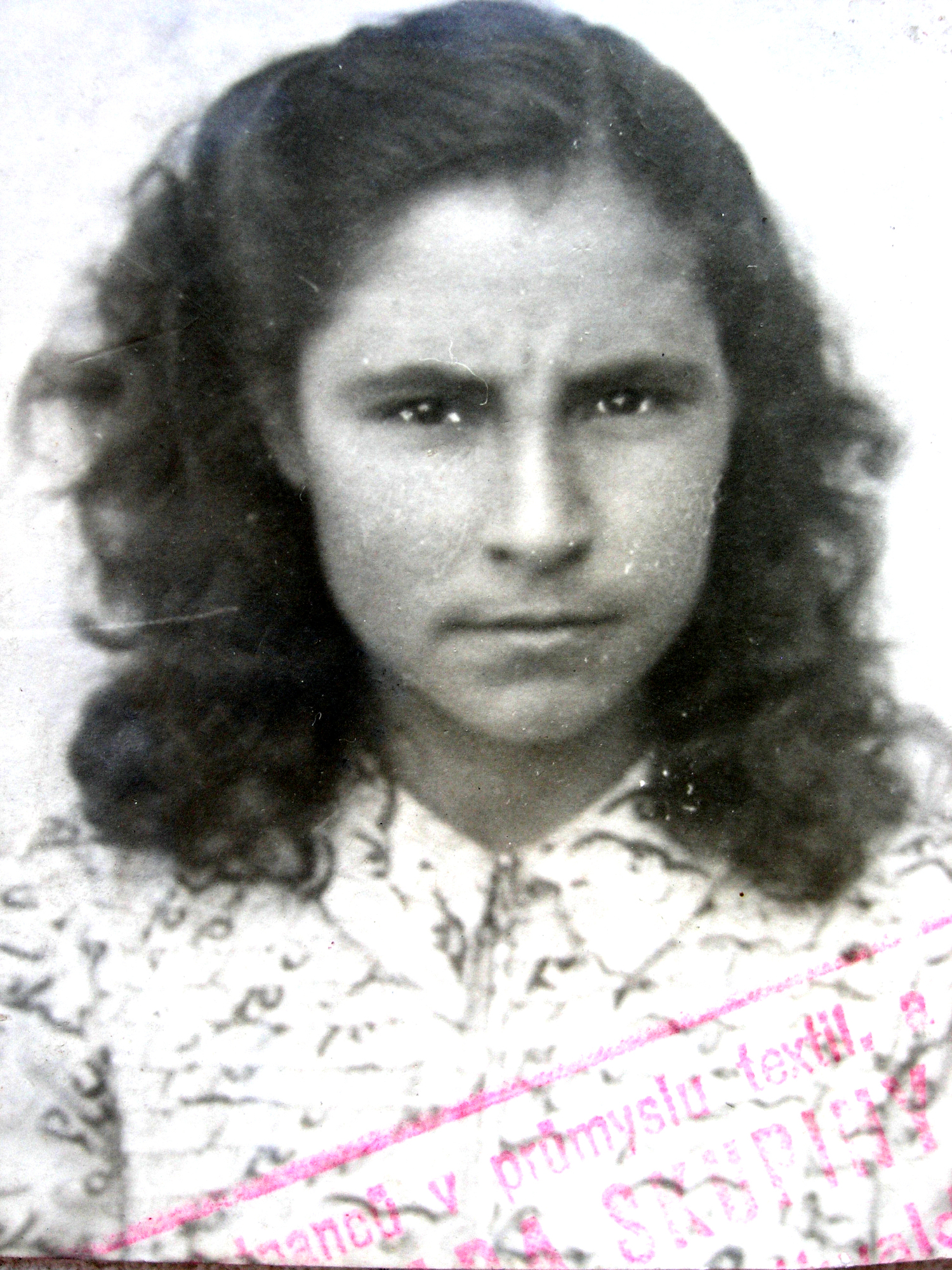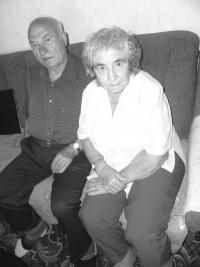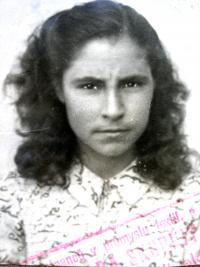State hairdresser, what nonsense is that! That isn‘t communism, to have everything state-owned.

Stáhnout obrázek
Ekaterini Dimoschaki was born on the 5th of May 1928 in Greek Macedonia. Her father was Greek and her mother Slavic Macedonian. In 1945, at 16 years of age, she departed for the current-day Republic of Macedonia, where she stayed for three years until moving to Buljkes, Yugoslavia. She speaks Greek, Macedonian and Czech. Her mother and her older sister were imprisoned. She met her future husband, Agorastos, in Buljkes, and they married a month later. They took separate routes to get to Rožnov pod Radhoštěm in Czechoslovakia in 1948, while Ekaterini was eight months pregnant with her son Vasil. She had three children altogether: Vasil was born on the 12th of January 1949, Athanas in 1952 in Náchod, and Dimitrios in 1954. They were given a flat that had formerly belonged to Sudeten Germans. She worked in a children‘s home. She only had two years of primary school in Greece, she learned to read Czech on her own, but she cannot write in Czech. The family moved to Úpice in the Trutnov district, where they worked in a factory. In 1953 they finally settled down in Šumperk, so that their children could go to a Greek school. Ekaterini succeeded in regaining Greek citizenship, but her husband did not. Her family was hit by a tragedy: her son Vasil died after an accident in 1968, and her second son Athanas apparently hanged himself in 1993 at the age of 42, because he could not cope with his wife having cheated on him. Ekaterini is very doubtful of this explanation and thinks it was murder. Her youngest son Dimitrios does not share his parents‘ Communist convictions. She resolutely disapproved of the occupation by the Warsaw Pact armies in August 1968, and she admits to Communists having made mistakes, especially the completely pointless dictatorship of the party, the restriction of personal freedom and the absolute nationalisation. Ekaterini is now retired and lives with her husband in Šumperk

